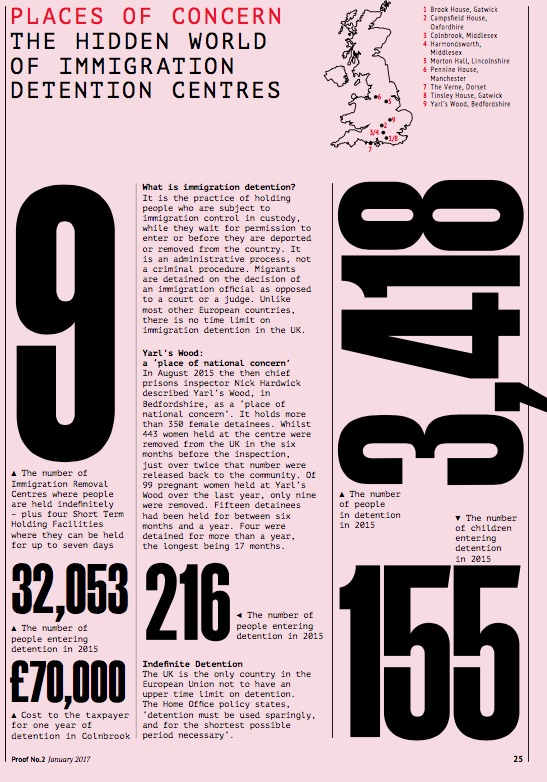Immigration detainees are being held in prison for more than a year and in one case for more than two and a half years despite little prospect of removal, according to prison inspectors. The new report highlights the plight of detainees who ‘routinely’ struggle to find legal help despite prison rules supposedly guaranteeing access to legal aid lawyers.
According to HM Inspectorate of Prisons, 621 people were held under immigration powers as of March this year – typically, detainees are held in immigrant removal centres. The length of detention in prison varies widely and of 45 detainees interviewed, 12 had been held for a month or less, 23 for between one and six months, seven for between six months and a year, and two for over a year. The longest detention under immigration powers was 33 months which, the inspectors said, was ‘an unacceptable length of time to hold anyone in administrative detention’.
Whilst there is currently no legal limit on the amount of time someone can be held in immigration detention, Home Office guidance states that it must be for the shortest period necessary. For many, there was ‘little prospect of removal’ in a reasonable period of time, challenging the legality of such detention.
The charity Bail for Immigration Detainees (BID) has called immigration detention in prisons ‘unfair and unjust from the start’ and said such detainees suffer from ‘multiple, systemic, and compounding barriers to accessing justice’ with ‘an often devastating effect on their ability to progress their immigration case’.
Out of the 45 detainees interviewed, 21 had no legal representation, with many being unable to afford a solicitor. According to the prison service’s own policy, prison staff should provide immigration detainees with a list of at least ten law firms which provide legally aided advice however his was ‘not routinely being provided’. Only seven of those interviewed were seeking representation on legal aid.
Detainees in removal centres are subject to Detention Centre Rule 35 safeguarding their welfare, but there is no equivalent on the prison estate meaning that there is a failure to identity vulnerable detainees including victims of torture. More than half of the detainees interviewed (27) reported poor mental health, often linked to their experience in detention. Inspectors found that detainees frequently reported ‘feelings of helplessness’ exacerbated by language barriers. Some described experiences of being served paperwork ‘under the door’, with few being given the opportunity to ask questions or even understand why they were in custody. This was often enhanced by the lack of robust communication between the Home Office and prisons, particularly around policy changes.







